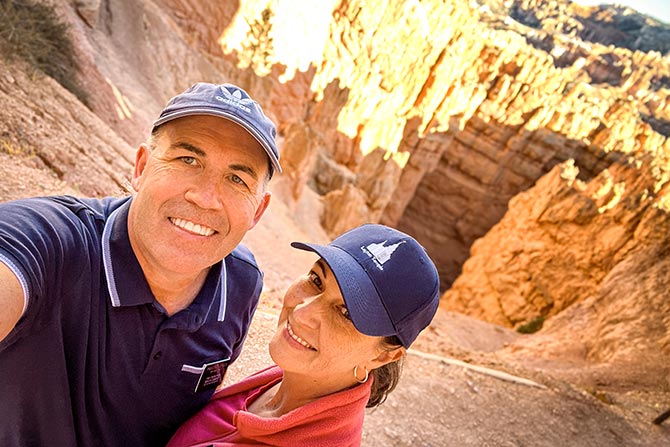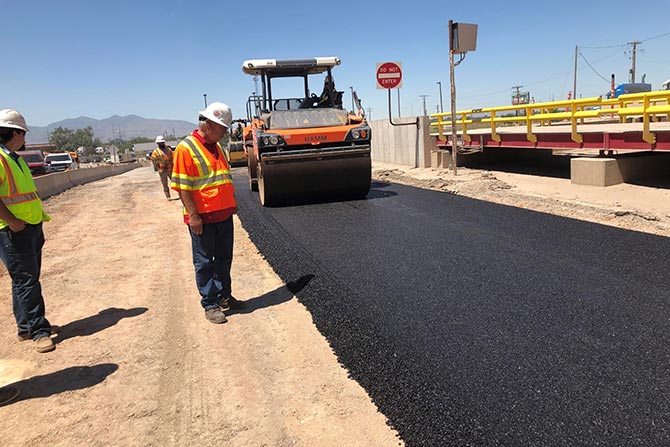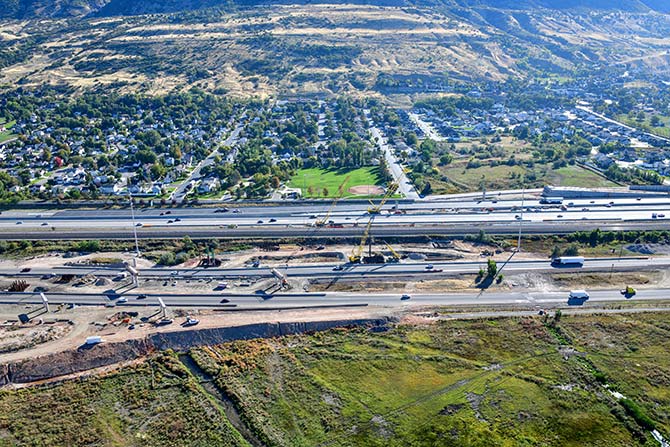Rick Johnson is the new executive director of the Utah Asphalt Pavement Association (UAPA). As a dynamic leader with over 35 years of experience driving organizational change and improving business functions across various industries, Rick is ready to help UAPA grow to meet the increasing needs of Utah’s roadways.
With a diverse resume, Rick’s career includes significant roles at FedEx, where he managed teams responsible for $1 billion in annual revenue and contributed to global revenue growth. His leadership was pivotal in fostering a high-performance culture and developing new business channels. As the founder and partner of Stat Pads/Rescue Stat, he successfully led the company from startup to sale. And, at Western Electronics, he quadrupled sales as vice president of sales and marketing.
Rick holds an MBA from Boise State University and a BS in finance from the University of Utah. Recognized with numerous awards, including the FedEx Five Star Award and Sales Hall of Fame, Rick excels in global supply chain and logistics, sales and negotiation, team and culture development, and stakeholder management.
In an effort to introduce himself to UAPA’s membership, Rick recently took the time to share his thoughts about his life, career and plans as the new executive director.
You have an impressive resume. What were the driving factors for wanting to work in the asphalt industry?
My wife, Angela, and I recently ended our volunteer mission for The Church of Jesus Christ of Latter-day Saints. I served as a mission president in Layton, Utah. We wanted to stay in Utah so I started to look for a job. My friend, Dean Garrett of Morgan Pavement, mentioned that I might be interested in filling the empty executive director’s seat at UAPA.
The possibility of the job piqued my interest, and I lined up an interview with UAPA’s board of directors. During that interview, I was asked, “So, what do you know about asphalt?” My response was nothing short of honest: It’s black and I drive on it. That’s my level of knowledge on asphalt. But my background is working with people, building cultures, sales and marketing, organizing, leading large groups, setting visions and strategically moving organizations forward. In short, making things happen.
I shared some of my past business and life experiences that showed how I took diverse companies and groups of individuals and brought them together. I let the board know that is what I would do if I were to be hired for the position. Long story short, I was hired for the job.
What are your goals as executive director for the first 90 days?
My goal as the new executive director is to better understand the industry — understand the association members, the producers of the product, the suppliers of the product, the contractors, the workers that are laying the product down, the ones that are manufacturing or maintaining it, and some of the customers as well as the cities and counties.
I’m going to try to visit as many members as I can in person. I want to know who the members are, what’s going on with their business and what their ultimate needs are. I’m off to a good start but still have a long way to go.
What can members do to help you reach your goal?
When I reach out, they can make themselves available so I can come visit and learn from them. If there are things they think will help benefit the association and the industry, I want to know about it. Everybody has a different perspective, and as we counsel together, we’ll be able to make better decisions.
With the Olympics coming to Utah in 2034, there is much to do for the state to prepare. So, if there’s ever a time when we, as an association, need to be aligned, it’s now.
What are the biggest issues facing the industry?
Although I am just starting, I have identified a number of issues that I’d like to address:
- Different organizations — municipalities, cities, UDOT, private companies, developers — are coming up with different specs when it comes to asphalt. It wasn’t always this way, and that creates a challenge.
- The use of RAP within asphalt varies widely. UDOT has a 15% RAP mix component, and there are a lot of states that are going up to 30% without any issues. Increasing RAP is a huge cost savings, plus, environmentally, it has a lower footprint on carbon emissions. We need to be on the same page — from producers and contractors to installers and the end user — with specs and consistency as much as possible. There are different applications when you look at, for example, Southern Utah versus Northern Utah.
- Recruiting skilled workers in the industry is going to be really critical. One of the common things that I hear as I’ve met with association members is, “I can’t get enough CDL drivers and enough workers.” We have some ideas on things that we can do with the local universities, high schools and tech schools that can potentially create a pipeline for students who would love to work in this trade in this industry.
- Communications. The training that we provide is monolingual. It’s all English, and we really need to shift to where everything’s done in Spanish and English.
- Increasing safety, especially with flaggers. Flagger training and flagger safety is so important because they’re working in the riskiest place.
- Making sure that all members have a voice, from the largest producer to the smaller mom-and-pop operations.
What accomplishment are you proudest of?
Marrying my wife, Angela. I married way above myself. She’s a sweetheart. She’s amazing! We have been married for 34 years. We have six kids: four girls and two boys. They range from 28 down to 18.
What is the biggest lesson you’ve learned in your career, and how did you learn it?
People are more important than anything else. Having a working environment that has a good culture where people feel valued, needed and respected. I worked for FedEx for 30 years. They had a philosophy called “People, Service, Profit.” You take care of the people, they’ll provide the service, which will drive the profit and that profit goes back into the people who provide the service, who provide the profit, etc. That circular process was really critical. I watched what that looked like operationally and also from a sales and marketing perspective. It’s a critical piece to the success of any company. Fundamentally, it’s not about the machinery; it’s about the people behind them.
Knowing what you know now, what advice would you give yourself when you first started your career?
I would have been bolder sooner. Instead of watching things happen, I would have spoken up more aggressively — in a kind way. I like it when people talk about it and then do it. Follow-through is important.
What advice would you give to the people in the business world?
Find a need and fill it.
When you’re not working, what do you like to do?
I like to water ski, snow ski, mountain bike and compete in triathlons. I did my first and only Iron Man a few years back in St. George. When I’m not on an outdoor adventure, I love spending time with my family.
What do you love about living in Utah?
I love the four seasons. Winter, spring, summer or fall, there is always something beautiful to see and to enjoy.
Any last thoughts?
I think, as an association, we really have a neat opportunity to make a difference in the state and in the lives of our individual families as we stay consistent and united on key topics. Doing so will benefit all of the organizations that are associated with UAPA. Quality will improve, rework will decrease, job satisfaction will increase, and if we do our jobs right, we can start to address some of the people issues that a lot of our members are dealing with.








